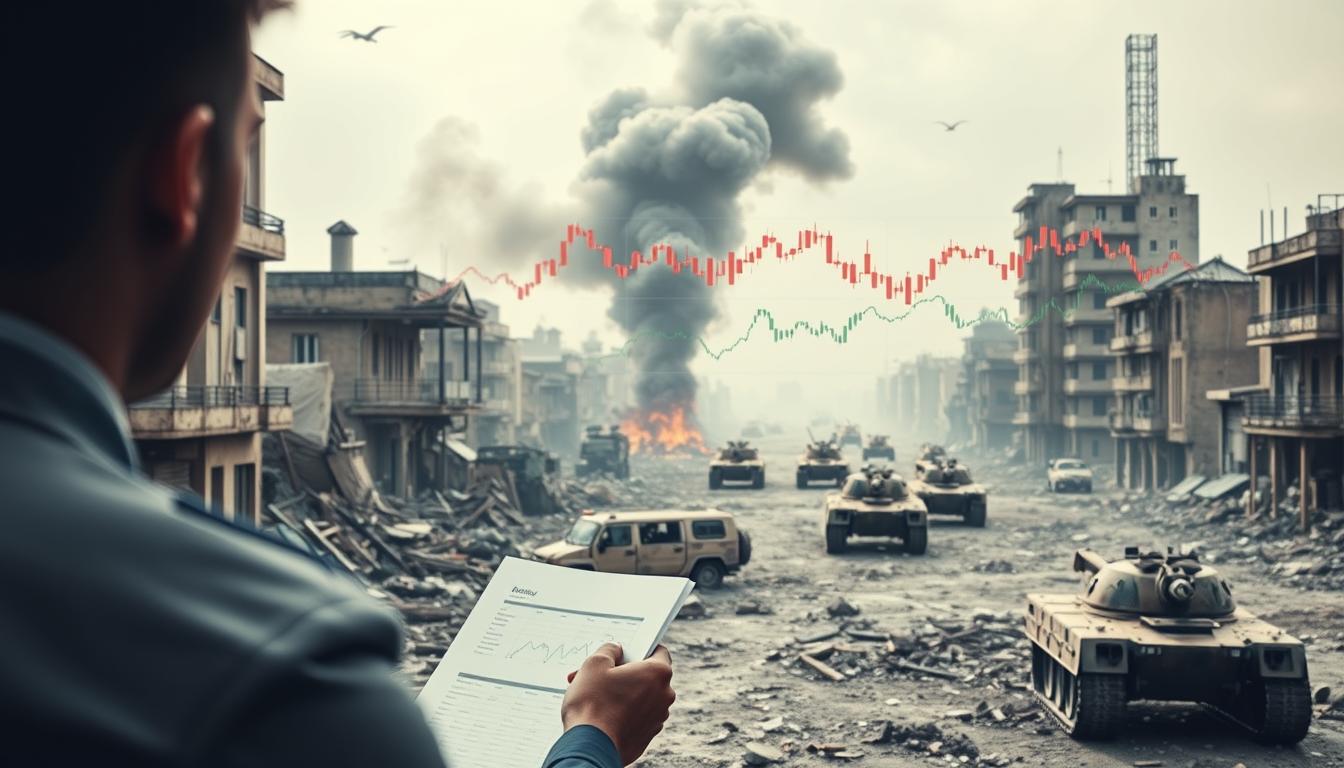The world is becoming more interconnected and it is necessary to know how global conflicts affect financial strategy. With the prospect of continued and new conflicts in the coming 2025, the effect of these conflicts on financial choices is also an imminent issue of concern to investors, policymakers, and individuals.
The world of geopolitics is a complicated game with different variables. These dynamics are essential in order to navigate in the financial world. In this regard, understanding the consequences of the international conflicts on financial strategy may be useful in making informed decisions.
Key Takeaways:
- The 2025 world conflicts are serious influences on financial markets.
- Financial strategy requires a knowledge of geopolitics.
- Investors and policymakers should keep up with the emerging conflicts.
- Global events are playing a critical role in making financial decisions.
- Flexibility is major to overcome the evolving financial environment.
The Geopolitical Landscape Replacing Markets in 2025:
Geopolitics and economics are converging in 2025 and posing new challenges and opportunities to both investors and policymakers. The existing geopolitical environment is characterized by the increased tensions and conflicts that are having a significant impact on the market processes.
Key Regional Wars and its Economic Effect:
The global economy is being significantly influenced by major regional conflicts especially in regions such as Eastern Europe and in Middle East. The volatility in the energy prices and the commodity markets is also increasing due to these conflicts. An example is the current war in Ukraine that has caused a major surge in the prices of energy, which has impacted economies across the world.
The economic effects extend widely, as most of the nations have become prone to inflation and the growth of the economy is slowed. Consequently, policymakers have had to struggle with the issue of striking a balance between economic stability and the necessity to resolve geopolitical tensions.
Online Warfare and Online Security issues:
Cyber warfare emergence is a major digital security issue, which affects financial institutes and multinational companies. Cyberattacks may cause significant financial damages and destroy the confidence in online systems. According to a cybersecurity expert, the threat landscape is ever-changing, and organizations should be on their guards and invest in effective cybersecurity.
The growing dependence on digital technologies has predetermined the emergence of cybersecurity as one of the key issues of online business and governmental interest.
Conclusively, the geopolitical environment in 2025 is defined by the complicated set of regional crises, trade wars, and cyber war that are transforming markets and influencing the economy.
Financial Approaches to Strategy in Economies with Conflict:
With the escalating tensions on the global arena, conflict-stricken economies are in need of new financial strategies that can reduce risks. These conflicts are complex and require a complex approach that will take into consideration all the financial aspects of managing these conflicts.
The Uncertain Times Diversification Strategies:
In the economies that are affected by conflict, asset allocation is critical. Diversification of the portfolio should enable investors to strike a balance between the risks and the returns. This may include moving investments to other assets or areas that are not highly hit by the conflict.
Diversification Strategies:
- Buying safe-haven commodities, such as gold or government bonds.
- Branching out in various geographical locations.
- Investing in industries that are not damaged in times of war like health or IT.
Commodity Investments and Currency Hedging:
The effect of currency variation can greatly affect returns to investment in conflict zones. The currency hedging plans can help reduce this risk by introducing such financial instruments as futures or options to fix the exchange rates.
| Currency Hedging Strategy | Description | Benefits |
| Forward Contracts | Locking in an exchange rate for a future transaction | Reduces currency risk |
| Options | Giving the holder the right, but not the obligation, to exchange currency at a specified rate | Provides flexibility |
Conflict Zones with ESG In Mind:
In the economies that are influenced by conflicts, the Environmental, Social, and Governance (ESG) consideration is becoming more and more significant. Investors have to look at the moral nature of their investment.
Ethical Investment Schemes:
The ethical investment systems help investors to make decisions that are morally right and in accordance with their values and duties.
Competition in the Sustainability of Resources:
The concept of sustainability is important in conflict regions where both resources are limited, and the demand is high. The investments must be aimed at long-term sustainability rather than short-term returns.
Through the implementation of strategic finance, conflict culminating economies will be in a position to overcome the pitfalls presented by world tension. It is a mix of wise assets distribution, efficient currency hedging and judicious ESG.

Conclusion: Developing Strong Financial Futures:
With the world wars defining the financial climate in 2025, it is evident that knowing how these wars affect financial strategies is paramount in coming up with effective financial strategies. The geopolitical environment is altering the nature of markets and trade wars, supply chain shocks, and cyber warfare are only some of the factors that are affecting financial decisions.
In order to manoeuvre through such uncertainties, investors and financial experts should employ strategic finance techniques that involve asset allocation plans, currency hedging, and investments in commodities. Through this, they will be able to develop strong financial futures that will withstand any tribulations of global conflicts.
To see the future of 2025 and onwards, one needs to keep updated and meet the changes in the world. Being focused on resilient financial planning and keeping track of geopolitical changes, people and businesses can become more successful in a highly complex financial landscape and finally guarantee their financial futures.
FAQ:
What effect will global conflicts have on 2025 financial strategies?
The financial strategies of the year 2025 will be greatly influenced by the global conflicts which are emerging in form of new risks and uncertainties including trade disruption, cyber-attacks, and volatility of prices of commodities, which new investors and policymakers will need to adjust to.
What are the key regional wars that impact on the world economy?
Constant wars in areas such as Eastern Europe and the Middle East are causing significant impacts on the prices of energy and commodity prices in the world market, as trade wars between the key economies are derailing the supply chains.
How can investors protect their assets during times of geopolitical uncertainty?
What role do ESG considerations play in investment decisions in conflict zones?
How is cyber warfare impacting financial institutions and multinational corporations?
What are the benefits of currency hedging in volatile markets?


